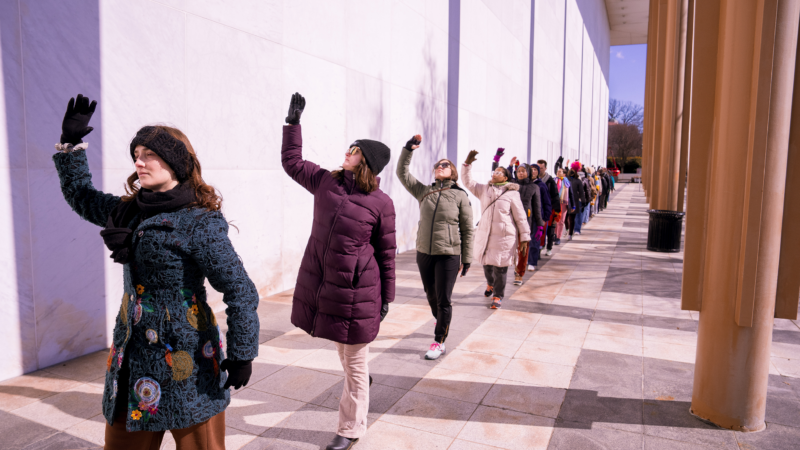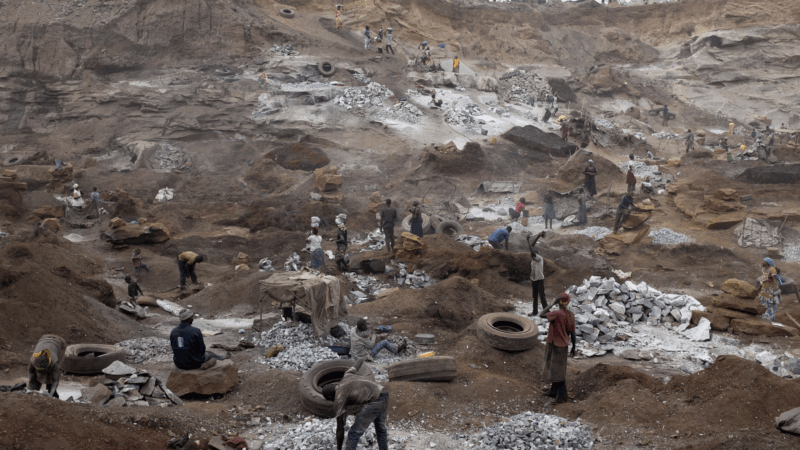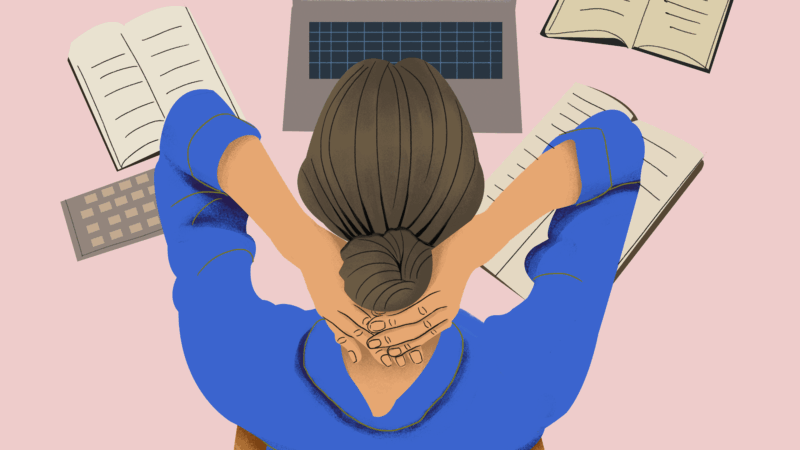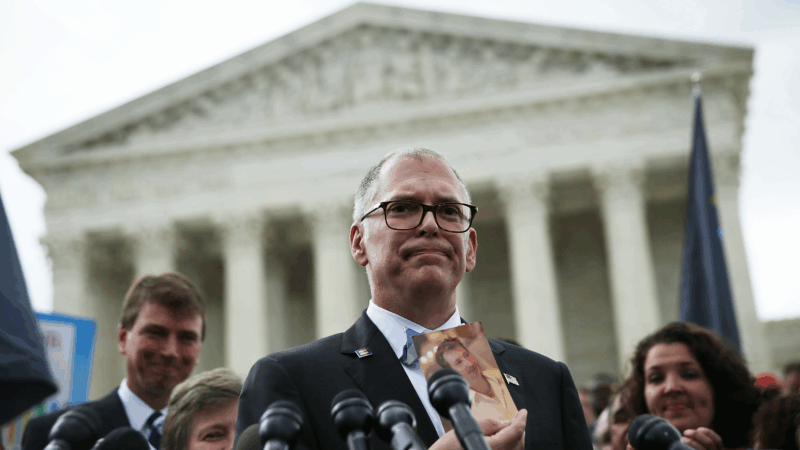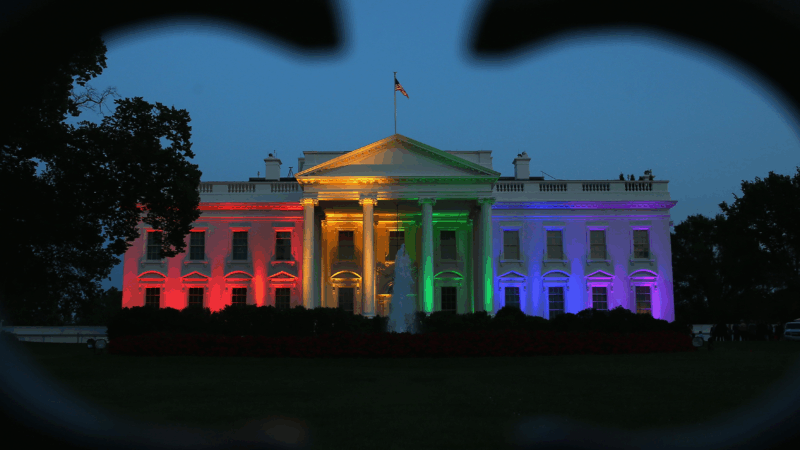As Trump takes over leadership at Kennedy Center, some protest through dance
Protesters chanted across Washington, D.C. on Monday to demonstrate against executive orders signed by President Donald Trump. But outside the John F. Kennedy Center for the Performing Arts, one of the performing arts landmarks of the United States, there was a different kind of protest: a dance.
Thirty-four dancers performed The Nelken Line, a piece by choreographer Pina Bausch that pays homage to the seasons. It’s been performed widely since Bausch created it in 1982. There’s even a tutorial.
In the piece, dancers walk in a single-file line and make synchronized movements.
“It felt symbolic in that we’re moving in unison,” says dancer and educator Kelly King who organized the protest, “And there’s something just compelling to see a straight line of movers dancing this way in a march.”
View on Threads
The dancers are protesting the leadership changes at the Kennedy Center, which operates under a private-public partnership and receives some federal funding. Traditionally, it has a bipartisan board. But now the board consists of members appointed solely by Trump, with the president himself as the chair, which is the first time a president has served in that role.
King says, historically, the Kennedy Center’s dance offerings have been largely focused on “classical ballet and very white programming or European-based programming.” But in the past decade or so, she’s seen a shift that includes “many more contemporary works and some under the radar dance offerings that give both artists and audience an opportunity to expand their horizons. And that has been really exciting and encouraging to see.”
She and the other dancers are worried about whether that kind of diversity will continue under the new administration.
A spokesperson for the Kennedy Center tells NPR, “There have not been changes made to the Center’s dance programming nor are there any changes planned.”
King says the protest came together quickly. After spreading the word on social media, she set up two Zoom rehearsals. She chose the Bausch work because it’s simple enough that dancers of all ages and abilities could master it easily.

King says nobody at the Kennedy Center tried to stop any of the dancers, though a handful of security guards followed them as they danced around the perimeter of the building for about 30 minutes.
“They were unsure of what they were going to encounter with us,” says King, “And as I spoke to them individually and they saw what we were doing, they realized that we were certainly not a threat. And I think perhaps by the end they were entertained.”
Audio and digital edited and web page produced by Jennifer Vanasco. Audio mixed by Chloee Weiner.
How many kids go to work instead of school?
They toil in mines, tend crops, scrub floors. An author of a new report on child labor points to great progress in reducing the number of kids who work but says the numbers remain "unacceptable."
The paperwork trap: A sneaky way to cut Medicaid in the ‘One Big Beautiful Bill’?
Republicans want to add work requirements for Americans to get Medicaid. Is that a necessary step to fight "waste, fraud, and abuse" or a sneaky way of cutting the social safety net?
He sued for marriage equality and won. 10 years later, he fears for LGBTQ+ rights
Jim Obergefell, plaintiff in the landmark Supreme Court case that legalized gay marriage in all 50 states, reflects on the decision 10 years later and the LGBTQ community's current civil rights fight.
‘The Bear’ is back — and leaning into its strengths in Season 4
The new season picks up right where we left off — with a review of the restaurant — and refocuses on the relationships between Carmy, Sydney and Richie.
The Trump administration says it wants to eliminate FEMA. Here’s what we know
Every year, millions of Americans rely on FEMA assistance after hurricanes, wildfires, tornadoes and other disasters. The president says state governments should do more.
‘Equal dignity’: U.S. map shows the impact of Obergefell v. Hodges decision
"They ask for equal dignity in the eyes of the law," then-Supreme Court Justice Anthony Kennedy wrote in the June 26, 2015, ruling legalizing same-sex marriage. "The Constitution grants them that right."

